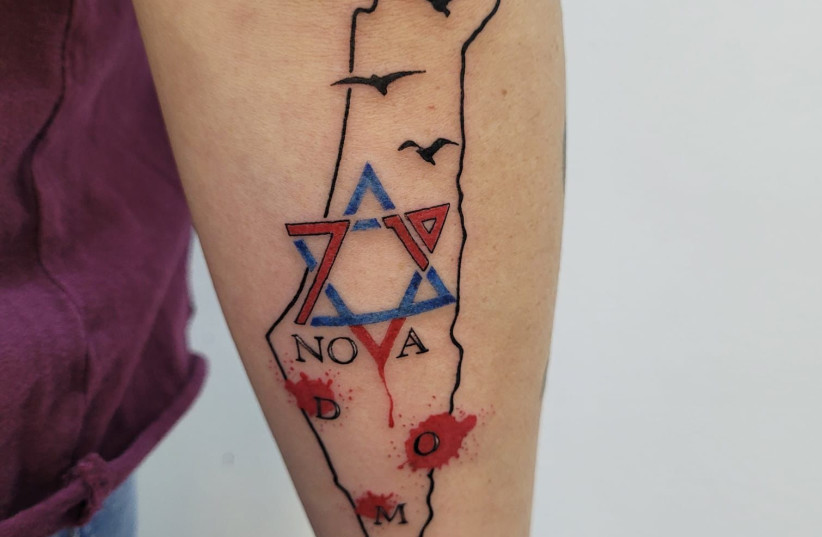In a powerful trend, individuals throughout the country are choosing to commemorate the tragic attack that occurred in southern Israel on October 7 with meaningful tattoos. This surge in tattoo requests has sparked conversations about the ways people cope with and remember traumatic events.
“It's how I express myself. If you see me, I'm all tattooed,” said Miki Cohen, who recently got a tattoo in memory of the victims, and as a lasting way to immortalize the tragedy. “We really can't forget what happened. No one can forget what happened, and it's a way of putting it there forever for everyone to see.”
“We really can't forget what happened. No one can forget what happened, and it's a way of putting it there forever for everyone to see.”
Miki Cohen
The intricate design on her forearm features a silhouette of Israel’s borders, in which a flock of birds flies above a Star of David, which houses the tragic event’s date, 7/10. Below that is the word “Nova” and several initials throughout the South of the map, each with a red splatter behind it. In explaining the tattoo’s symbolism, she explained that each of the bloody initials corresponds to one of her friends who died in the massacre.
“The people who went to this party were the kind of people who go for peace and love and a way to express themselves,” she added. “My way of expressing the pain is putting it on me, you know?"
Commemorating the attack in Israel's South with tattoos
Cohen's Jerusalem-based tattoo artist, Orel Hillely, has seen a noticeable increase in requests for commemorative tattoos related to the southern Israel attack. In her 25 years as a tattoo artist, she has never seen such an overwhelming trend.

“People used to do it regardless of terrorist attacks. But now, since this holocaust, since this slaughter, it's something that — I'm 44 years old, and I’ve never seen something like that. I used to get requests for Stars of David and things like that, but not on the same amount as I do now. It's not the same. I don't think that anything will be the same,” Hillely said.
She explained that, based on her discussions with clients, many are like Cohen in that they wish to cope with the pain and loss by wearing it on their bodies in a permanent way. As an artist enabling these people to do so, Hillely feels that she herself is somewhat more able to process the gravity of the traumatic event.
“You feel more connected with the client, because while you're giving them the tattoo, you talk about it. It’s difficult to understand that something like that ever could have happened. But when you talk about a trauma, it's like it's a part of a healing process,” she said.
She concluded that the rising trend in tattoos immortalizing the tragedy of October 7 is the result of a nationwide wake-up call. “I think people are awake now. People are realizing that this is our country. And this is the most important thing except for our families and our lives,” she said. “This is our homeland. This is something that we need to protect.”
